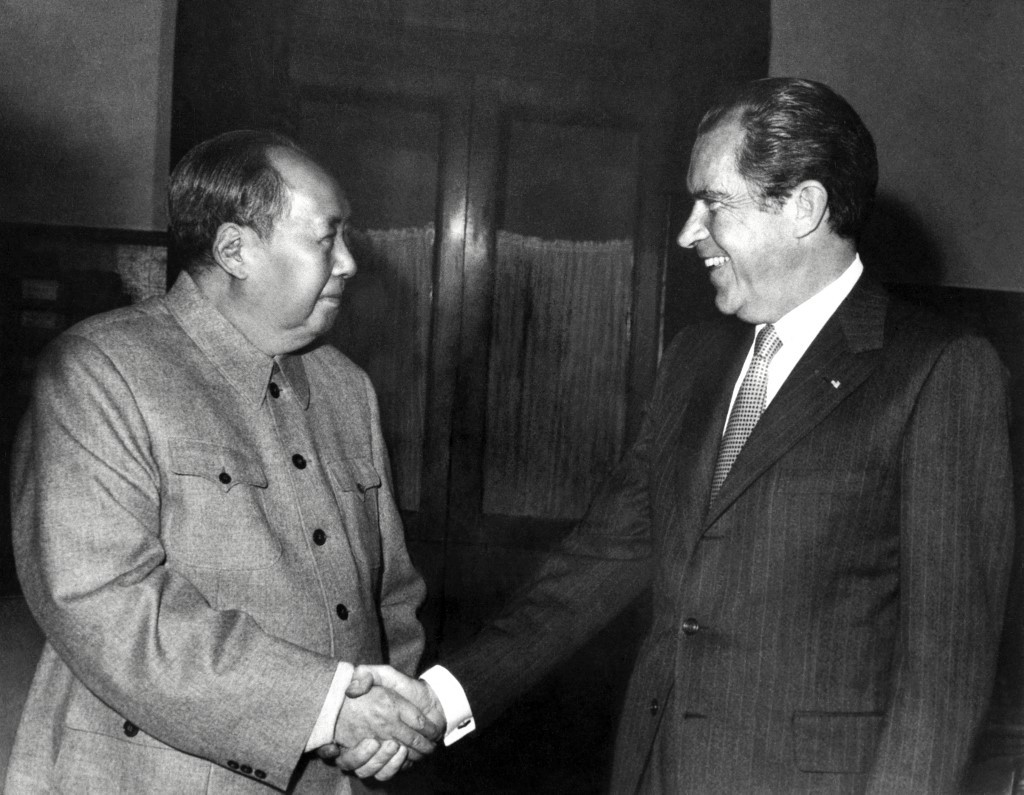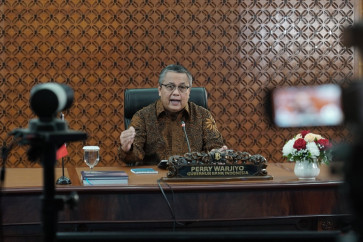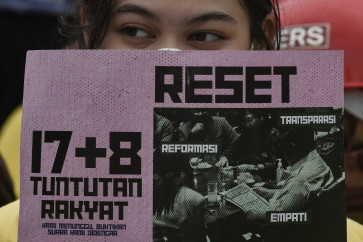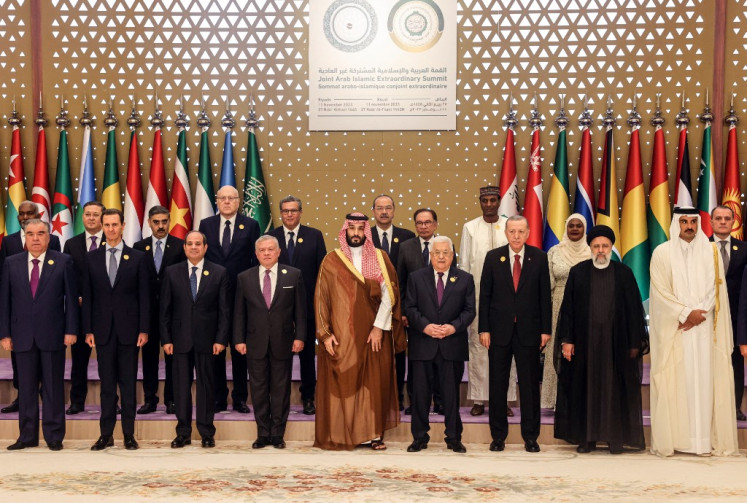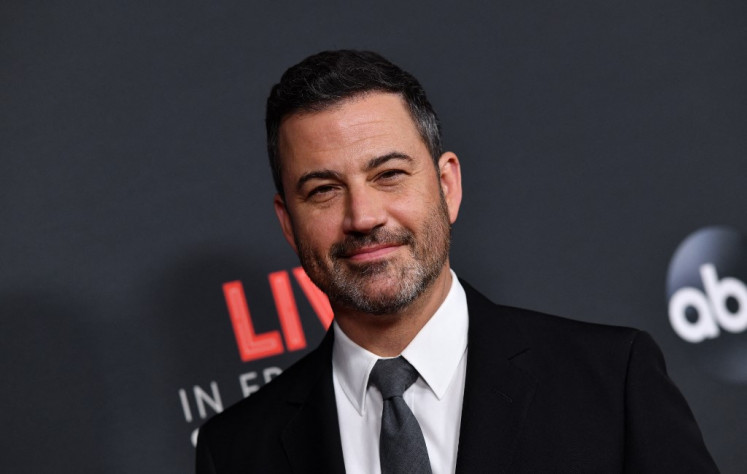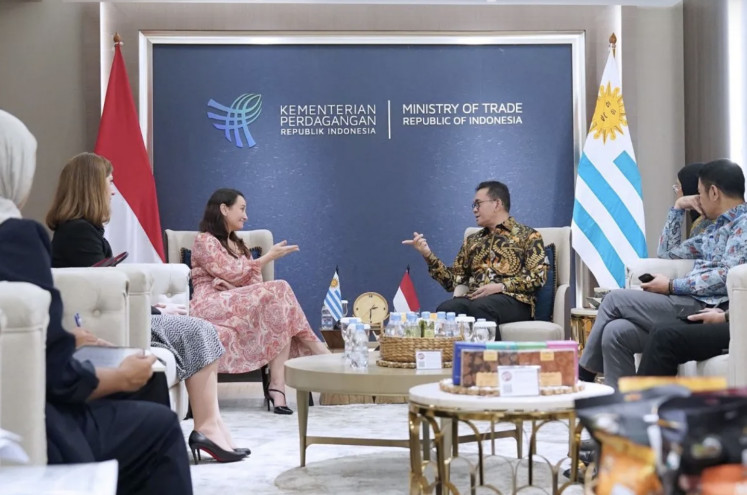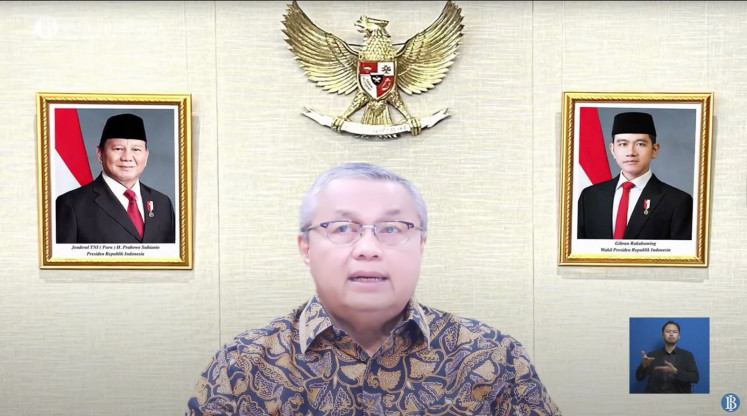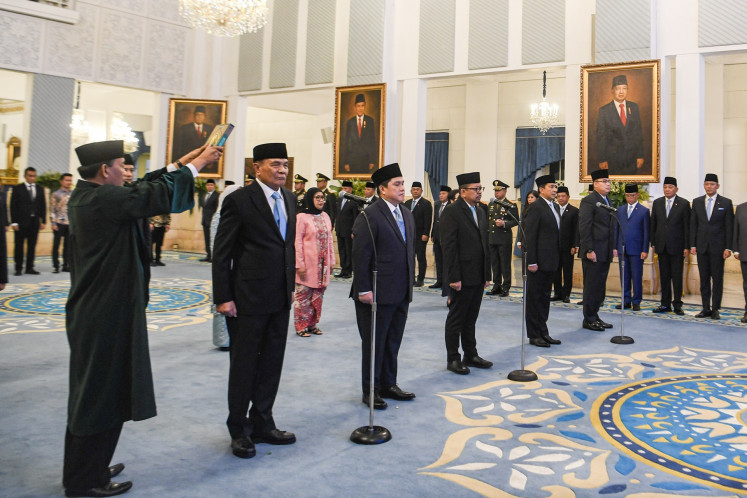Popular Reads
Top Results
Can't find what you're looking for?
View all search resultsPopular Reads
Top Results
Can't find what you're looking for?
View all search resultsChina raps tough US policy on 50th anniversary of Nixon's visit
The anniversary came amid escalating tensions between the two major world powers over issues such as China's alleged human rights violations in Hong Kong and Xinjiang, as well as security challenges to Taiwan.
Change text size
Gift Premium Articles
to Anyone
C
hina criticized the United States for adopting a tough policy toward it, on the 50th anniversary Monday of former US President Richard Nixon's historic visit to Beijing.
The anniversary came amid escalating tensions between the two major world powers over issues such as China's alleged human rights violations in Hong Kong and Xinjiang, as well as security challenges to Taiwan.
In 1972, Beijing and Washington confirmed the principles of "non-aggression" and "non-interference" in each other's internal affairs.
Nevertheless, some officials in the administration of US President Joe Biden have regarded the leadership of President Xi Jinping as a "major strategic competitor, or even an imaginary enemy," Chinese Foreign Ministry spokesman Wang Wenbin told reporters in Beijing.
Wang, however, added China might celebrate the 50th anniversary with the United States in the near future, suggesting Beijing has aimed to improve relations with Washington as a prolonged bilateral trade dispute has weighed on the world's second-biggest economy.
Nixon became the first US president to visit mainland China after the Communist Party founded the People's Republic of China in 1949. In 1972, 18 nations, including Japan, a close US ally in Asia, established diplomatic ties with Beijing.
In 1979, the United States switched its diplomatic recognition from self-ruled Taiwan, which calls itself the Republic of China, to the People's Republic of China. Taipei and Beijing split in 1949 due to a civil war.
Since then, the economy of China, dubbed the "world's factory," has been sharply expanding by facilitating economic activities with capitalist countries like the United States and Japan.
On the back of economic growth, the Asian nation, with its population of more than 1 billion, has been bolstering its military spending and capability in recent years in an apparent bid to reunify the democratic island with the mainland by force if necessary.
The United States, meanwhile, maintains substantive, though unofficial, exchanges with Taiwan and supplies it with billions of dollars in arms and spare parts for its defense, becoming a source of deterioration in its relations with China.
On Monday, Wang said China has decided to impose sanctions on Raytheon Technologies Corp. and Lockheed Martin Corp. as countermeasures against the two US companies over their latest arms sales to Taiwan.
China considers Taiwan a renegade province. The relationship between the mainland and the island has worsened since independence-leaning Tsai Ing-wen became Taiwan's president in 2016.

